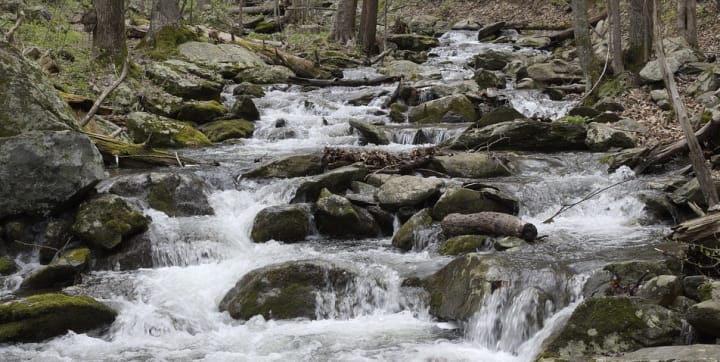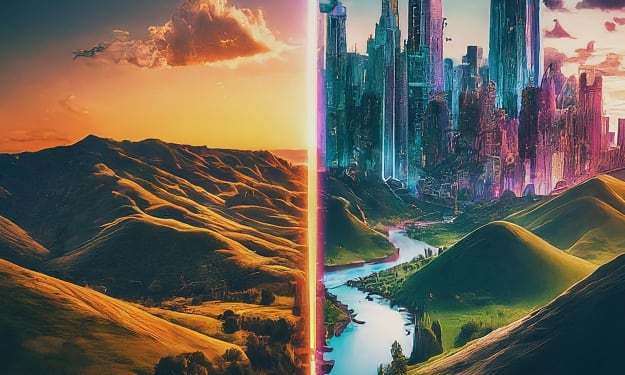Why do humans have to pay to stay alive? Part 2
Water

To stay alive, humans need to drink a certain amount of water every day or so. Maybe science will change that someday but for now, it’s fine.
*Random invention idea: Maybe a thing could be made that sucks moisture out of the air, filters it, and gives it to the body!
Water bills usually aren’t too high (about $850 per year) but my issue with the system is that we need it to survive and have to work to pay for it. The average person uses about 3000 gallons per month! I appreciate that we don’t have to carry our own water from the local stream, boil it, and store it, but I think there is still room for innovation when it comes to water collection, filtration, and distribution.
Finding water sources on Earth is usually not hard, as 71% is covered in it! Moving it from place to place is relatively easy, given the invention of pipes and pumps. Now, for the hard part: filtration. Water from any given source can range from pure to completely disgusting. It is the filtration plant’s job to turn any water into drinkable water.

I know it’s gross to think about but the water cycle is aptly named; we don’t just get new water from space once we drink a glass. Every drop of water that we drink (unless you are a crazy survivalist) comes from a filtration plant that turns water from oceans, rivers, streams, etc. into drinkable water. Taking another step back, all the water that you flush down your toilet (you know what all goes in there) passes through a sewage treatment plant and is released into those local water sources that we just took to the filtration plant. You are currently and have always been drinking water that used to be someone else’s pee.

If you can stomach this concept, read on to see how water could be made free.
If humans were out of the picture and robots, powered by renewable energy, controlled all aspects of water collection, filtration, and distribution, water could be free. The companies that currently filter our water rightfully take pride in their innovations and safety procedures in their field. They deserve to be paid for their work; however, a robot could do the same things for no pay.
Sure, machinery will break and need replacement parts or maintenance but if robots could be trained to collect the necessary raw materials, make the necessary parts, install the necessary parts, and detect for anomalies in all the equipment, human interaction is no longer needed.
I could stop there but since water is being wasted all the time, making the job of water filtration plants harder, I wonder: could we collect our own water and filter it? I’m not saying that we should collect enough to fill a swimming pool on top of normal needs, but if we could do some of the heavy lifting, it would help! Maybe a small unit, similar to a modern air conditioning unit, could collect it (like a dehumidifier), filter it, and either hold it in a reserve tank or just add it directly to your water pipes.

On a similar note, I assume you’ve experienced the wait when you turn on the shower and the water starts out cold? That water that is going down the drain is simply going to interact with the water in the pipes and return to the sewage plant then the water filtration plant only to be used in your shower again. Its only sin: not being the right temperature. Your water heater (probably 20-50 feet from your shower) has the job of heating filtered water and delivering it to sinks and showers. The water in those 20-50 feet is almost always wasted and recycled. Instead of sending it down the drain, what if the water could return to the water heater? That way, when you turn on the shower, you can dictate your desired temperature and the water will only dispense out of the head when it reaches that temperature. The water currently in the pipes is sent back to the heater, probably being used later in the shower experience. This would also save you from taking a drink of warm water that you got from the tap because someone else was just doing dishes.
Lastly, the topic of grey water is a controversial one. Grey water is water that has been filtered but not to the specifications for drinking. Some countries use this type of water for toilets and other systems that use non-potable water. Currently the US is split on the legality of this idea. If it were completely legal, sewage/wastewater plants would produce the water that is used in toilets, gardens, etc., lifting a significant burden on the drinking water filtration plants! I imagine separate water towers would be need to be made to allow for mass distribution like drinking water is currently distributed. (Further innovation may happen on this front!)
What is the bottom line of all this? Water could be free and used more efficiently! It is still a futuristic concept but one that I see as not far off. The holes in my logic and the technology not yet in existence are small obstacles to overcome, I believe!
Please read my other posts to continue to learn about my dream for the world. Thank you for reading this one!






Comments
There are no comments for this story
Be the first to respond and start the conversation.